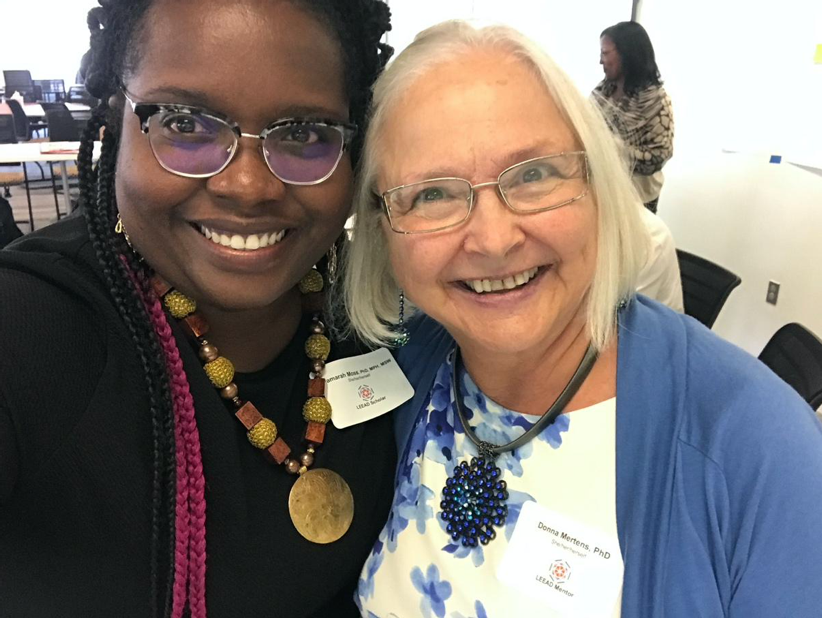
Greetings! We are Donna Mertens (mentor) and Tamarah Moss (protégé) with the Leaders in Equitable Evaluation and Diversity (LEEAD) Program, focused on culturally responsive and equitable evaluation (CREE), and led by Change Matrix as part of the Expanding the Bench™ (ETB) initiative. ETB is based on the assumption that evaluators from diverse and underrepresented communities can provide leadership in the evaluation field by implementing evaluations that are transformative, culturally responsive, and equitable. As such, we are sharing the following lessons learned:
Lessons Learned 1: Organizations bring their own culture. No matter how seasoned the evaluator, tensions can arise because of the culture of the organization with which you are working. CREE needs to be applied both to our evaluation tasks, and in assessing the culture of partner organizations. How does evaluation fit into the primary stakeholders’ daily routine? What sources of resistance to CREE are present in this context? This is especially relevant in time sensitive environments guided by funding periods. In the mentor-protégé model, this is an opportunity to bridge practitioner wisdom and CREE informed project goals.
Lesson Learned 2: Strengthen knowledge of CREE through participation in curriculum. It was important for me (Tamarah) as the protégé to participate in learning activities to understand what CREE is as a concept and in application. As a mentor, Donna provided case studies of application that enhanced my learning outside of the classroom and illustrated the importance of a mentor-protégé model, even in professional development.
Lesson Learned 3: Transformative relationship. The expertise and knowledge around how to address applying a CREE lens is an ongoing challenge that continues to be transformative for both the mentor and protégé. Donna proposes four common themes to transformative CREE evaluation approaches: (1) relying on ethical stances of inclusion and challenging oppressive structures; (2) creation of evaluation design that builds and nurtures transparency; (3) being intentional about using results to enhance social justice and human rights; and (4) addressing intersectionality through culturally responsive strategies.
Hot Tip 1: Find a mentor or colleague to share your frustrations and successes with; you are not alone; there is a strong community of evaluators that support CREE.
Hot Tip 2: Increase your knowledge about transformative CREE theory and practice.
Rad Resources:
- About Leaders in Equitable Evaluation and Diversity (LEEAD)
- AEA Graduate Education Diversity Initiative (GEDI)
- Minority Issues in Evaluation (MIE) TIG mentoring program
- Minority Serving Institutions Fellowship
- The etcetera of transformative evaluation by Stephen Porter and Donna Mertens
- AEA Coffee Breaks Webinar Series
This week, we’re diving into issues of Culturally Responsive and Equitable Evaluation (CREE) with contributions from members of the Expanding the Bench Initiative (ETB). ETB is an initiative based on the fundamental belief that increasing diversity in the field of evaluation improves our knowledge base and makes for better science and social innovation. Do you have questions, concerns, kudos, or content to extend this aea365 contribution? Please add them in the comments section for this post on the aea365 webpage so that we may enrich our community of practice. Would you like to submit an aea365 Tip? Please send a note of interest to aea365@eval.org. aea365 is sponsored by the American Evaluation Association and provides a Tip-a-Day by and for evaluators.
